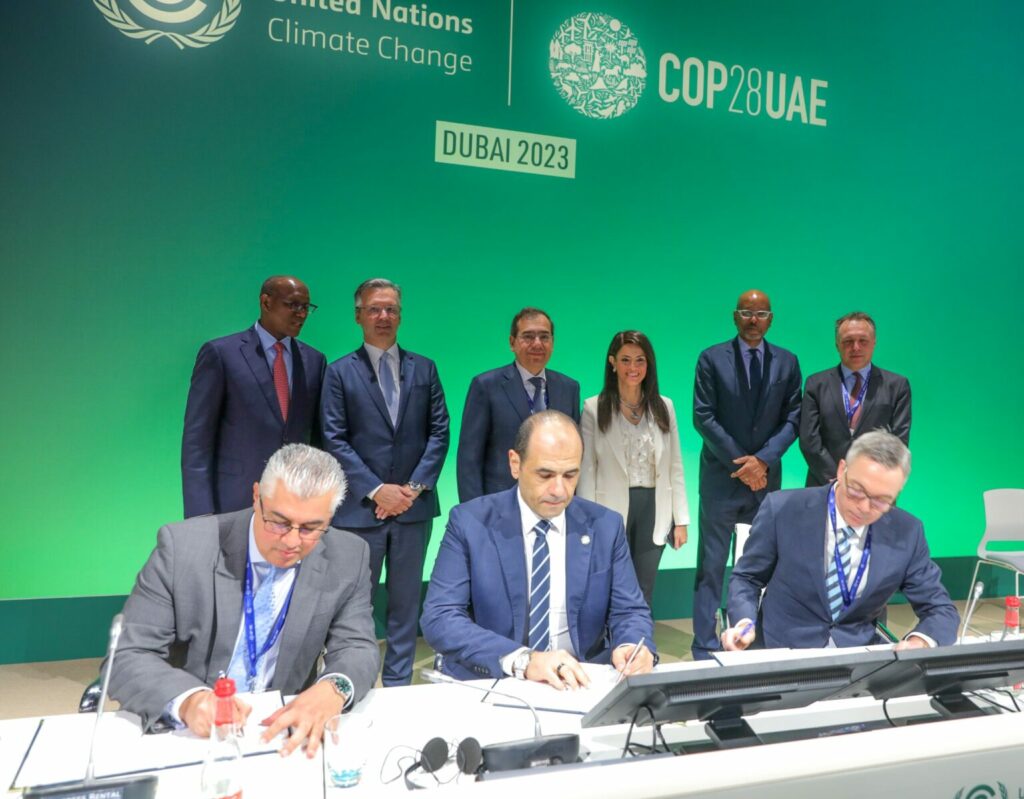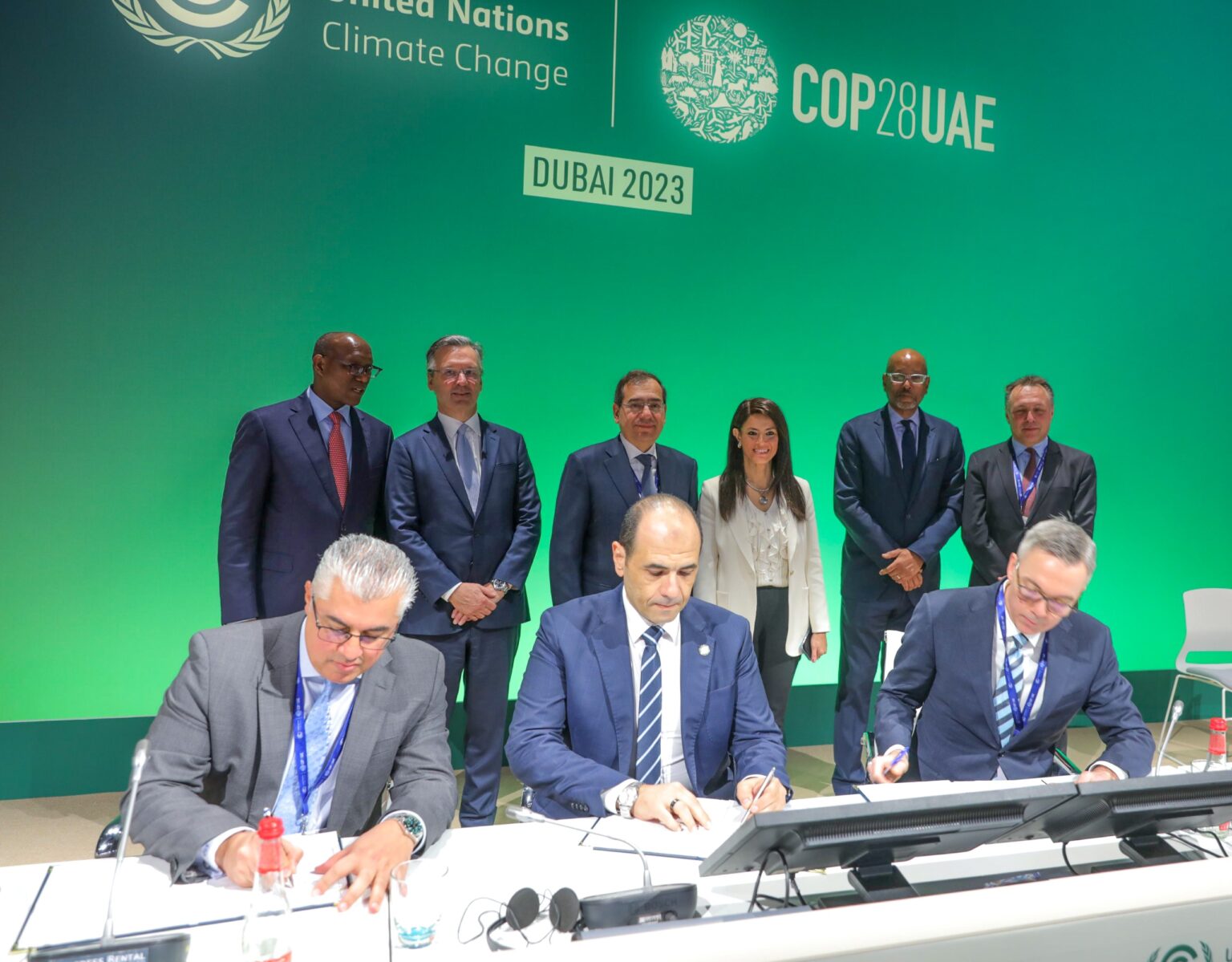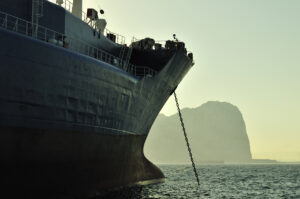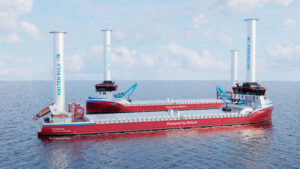
A $1.1 billion memorandum of understanding (MoU) has been signed by the Suez Canal Economic Zone and Scatec ASA.
Specifically, the General Authority of the Suez Canal Economic Zone (SCZONE), the Petroleum Technical Office, and Scatec ASA, have signed an agreement to grant Scatec a license to practice ship bunkering with green fuel in East Port Said.
The investment cost is around $1.1 billion (including investments in clean energy generation), and the production capacity will reportedly reach 100,000 tons/year of green methanol by 2027, with an electrolyzer power of 190 megawatts (MW) based on 317 MW of wind power and 140 MW of solar power.
The signing ceremony was witnessed by Eng. Tarek El Molla, Egyptian Minister of Petroleum and Mineral Resources, Dr. Rania Al-Mashat, Egyptian Minister of International Cooperation, and representatives of the African Development Bank and the British International Investment.
Waleid Gamal El-Dien, chairman of SCZONE, stated: “The signing of a new MoU with Scatec represents an extension of the partnership that began with the company’s first project in SCZONE, which was inaugurated by President Abdel Fattah El-Sisi on the sidelines of COP27 in November 2022, and recently succeeded in exporting the world’s first shipment of green ammonia.
“SCZONE’s regional pioneering in the green bunkering field came as a result of SCZONE’s ports readiness to provide this service, in addition to the prompt move towards green fuel production in cooperation with major international companies. This is to maximize the benefit of integrated industrial zones equipped with world-class infrastructure, in addition to the investment incentives and supportive work environment that SCZONE provides to its success partners.”
“East Port Said is the destination of the green bunkering project due to its location northern Suez Canal, and its integration with the ports of East Port Said and West Port Said, and therefore it is located near the ship’s waiting areas. We emphasize that green bunkering is not a main target in itself, but an imperative global requirement, especially since shipping is responsible for 10% of the world’s carbon emissions, so the use of green fuels in maritime transport will significantly affect the reduction of carbon emissions,” SCZONE chairman added.



